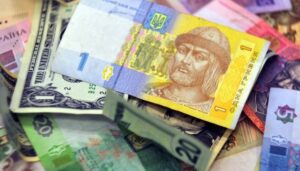
Ukraine International Airlines (UIA, Kyiv) has decided to terminate its branch in the Russian Federation, located in Moscow.
According to the airline’s message in the information disclosure system of the National Securities and Stock Market Commission, this decision was made by the Supervisory Board in connection with the reduction of the staff of UIA and the reduction in costs for representative offices.
As reported, in September 2020, UIA ceased operations of its divisions in Turkmenistan, Uzbekistan and Belarus, and in October – in Switzerland, Spain, Italy, Germany and Austria.
In June this year, UIA decided to close its representative office in China.

President of Ukraine Volodymyr Zelensky believes that the state stakes of PJSC Centrenergo and PJSC Odesa Port-Side Chemical Plant are ready for sale at privatization tenders.
“I believe that the privatization of Centrenergo is important. Today we have cleared the company of many influential groups and Centrenergo is open [for privatization] … So is Odesa Port-Side Plant. I believe that it is ready for today,” he said, when speaking with journalists at the all-Ukrainian forum Ukraine 30. Economy without Oligarchs.
Zelensky noted that when selling large enterprises, it is not so much a one-time receipt of the maximum possible funds that is important, but the obligation of potential investors to invest in the modernization of companies with the subsequent stable receipt of taxes from their economic activities.
“It is important not how much the state will receive at once, but how much later – from taxes every month, every year. Business is not about buy and sell, this is not about mediation, business is a constant investment of money in technologies, in ideas,” the head of state explained.
As reported, in early June, the Supreme Court satisfied the claim of Odesa Port-Side Plant and the State Property Fund of Ukraine (SPF) and denied Ostchem Holding Limited of Dmytro Firtash in the execution of the decision of the Stockholm Arbitration Court to recover over $ 300 million from Odesa Port-Side Plant for gas supplies.
According to Head of the SPF Dmytro Sennychenko, this is a very important decision for the transparent privatization of the plant, since now any potential buyer can be sure that creditors will not be able to challenge his ownership of the plant.
CENTRENERGO, PORT-SIDE PLANT, PRESIDENT ZELENSKY, PRIVATIZATION

JSC Ukrzaliznytsia assessed the management personnel and decided to reduce the staff of the company’s management staff by 30%, the press service of Ukrzaliznytsia reported with reference to acting head of the board of Ukrzaliznytsia Ivan Yuryk on Monday.
According to him, by now the supervisory board of the company has already agreed on a new structure of the company’s central office, the reduction of one third of employees will take place within the framework of its reform: it should correspond to the strategy, tasks and scope of work.
“There was a lot of talk about optimization of the Ukrzaliznytsia staff, it’s time to move on to action. We should put things in order as soon as possible in the structure of the company’s management apparatus, eliminate duplication of positions and clearly distribute the functionality between departments. This will allow us to make and implement management decisions much faster, efficiently and effectively. Now it is necessary to reduce 30% of the staff positions of the management apparatus of the company, which employs more than 2,400 people,” the press service quotes Yuryk.
At the same time, Ukrzaliznytsia says that the reduction will not apply to employees of regional branches of the company and employees of labor occupations.
According to Yuryk, the dismissal of workers will take place in compliance with the labor legislation and in agreement with the trade union, for this the company has developed a certain algorithm of actions.
“Employees whose positions are subject to reduction will be promptly warned about this, with an offer of another job. Upon dismissal, they will receive all proper payments and severance pay in the amount of not less than the average monthly salary,” the head of the company said.

Ukraine International Airlines (UIA, Kyiv) has decided to terminate the work of its division in Beijing (China).
According to the airline’s report in the information disclosure system of the National Securities and Stock Market Commission, this decision was made by the supervisory board in connection with the reduction of the staff of UIA and the reduction in costs for representative offices.
As reported, in September 2020, UIA ceased operations of its divisions in Turkmenistan, Uzbekistan and Belarus, and in October – in Switzerland, Spain, Italy, Germany and Austria.

Analysts at Bank of America (BofA) Global Research do not expect further nominal strengthening of the hryvnia, according to a June 14 BofA study.
The bank said that it is still constructive in relation to the International Monetary Fund (IMF), but the bank does not expect further nominal strengthening of the hryvnia, especially given the seasonality of the exchange rate in the third quarter, BofA said.

The National Association of Sugar Producers of Ukraine Ukrtsukor appealed to Minister of Economy Oleksiy Liubchenko with a request not to support the initiative of the Cabinet of Ministers to permit duty-free import of 120,000 tonnes of sugar until October 1, 2021. According to an appeal to the minister, published on the association’s website, the Ukrainian sugar industry is able to fully meet the needs of the domestic market, since as of June 1, sugar stocks in the warehouses of manufacturing plants amount to 300,000 tonnes, excluding stocks of agricultural producers, retail chains and the population. At the same time, according to Ukrtsukor, the average monthly sugar consumption in Ukraine is 80,000 tonnes.
“In addition, at the beginning of 2021, some 40,000 tonnes of white sugar were imported. Also in May 2021, Ukraine imported 60,000 tonnes of raw sugar from Brazil for industrial processing at two sugar factories into white sugar, and another 27,000 tonnes of raw sugar are already on the way to Ukraine and will be delivered by the end of June,” the association said in the appeal to the minister.
The above supplies, according to Ukrtsukor, will meet the domestic demand for sugar by the new season.
The association noted that in 2021 in Ukraine, the area under sugar beet crops increased compared to last year, which, together with favorable weather conditions, makes it possible to expect a sufficient yield of sugar beet. In turn, this will contribute to the full supply of the domestic market with sugar in the 2021/2022 marketing year (MY), as well as a possible decrease in sugar prices at the end of August 2021 with the beginning of the sugar making season.
As reported, the Cabinet of Ministers in June proposed to permit duty-free imports of 120,000 tonnes of sugar until October 1, 2021 in order to stabilize the situation in the market for this product.